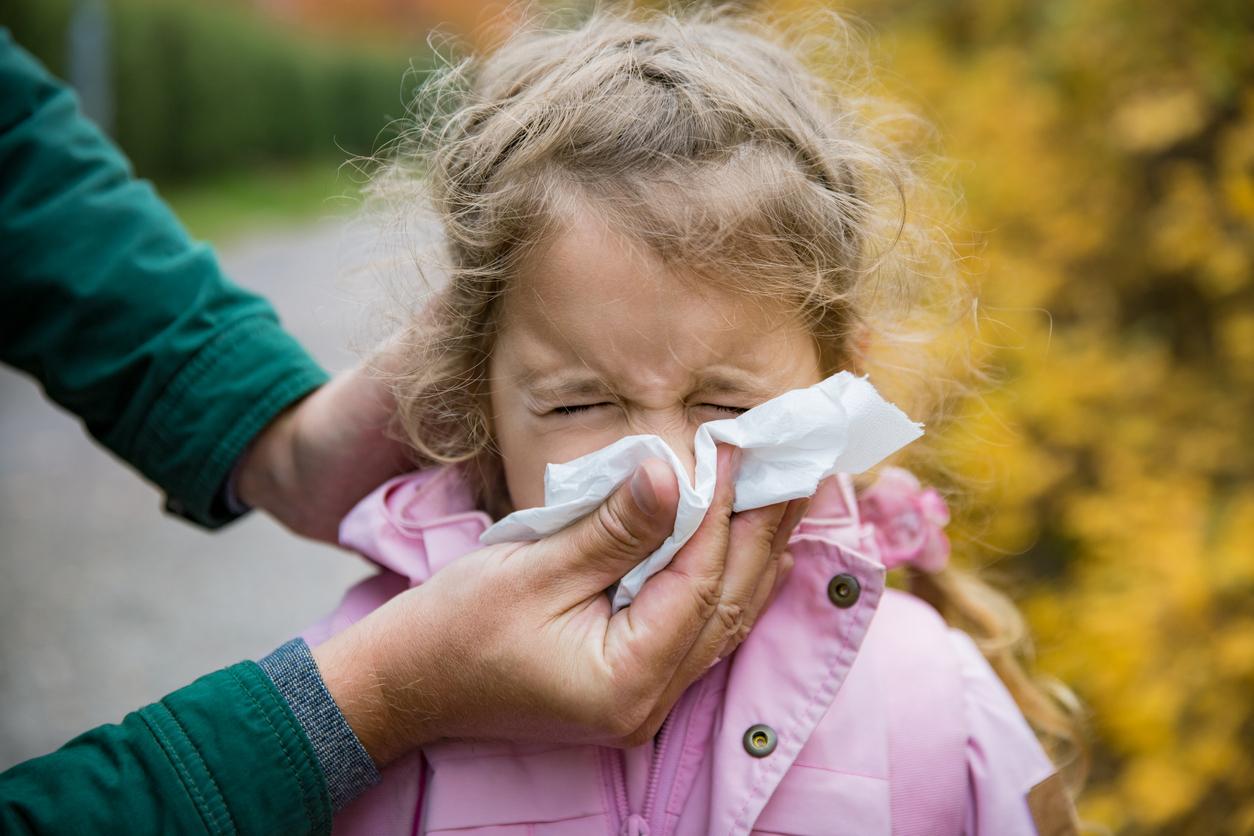Memory T cells, generated by the common cold, allow children and adolescents to be better protected against Covid-19.

- Children and adolescents infected with Covid-19 are less likely to develop a severe form.
- According to Swedish researchers, previous infections with coronaviruses that cause the common cold could be an explanation.
- These coronaviruses cause the development of memory T lymphocytes, immune cells effective against Sars-CoV-2.
Having a cold isn’t exactly pleasant, yet it could be beneficial. According to a study by the Karolinska Institute, located in Sweden, this mild disease could protect children from Covid-19. Their work is published in the specialized journal PNAS.
Colds and Covid-19: children less affected by severe forms
The authors started from an observation: during the most critical phases of the pandemic, children and adolescents infected with Sars-CoV-2 were statistically less likely to develop serious forms of the disease. “Most children infected with Sars-CoV-2 develop a mild form of the disease or are asymptomatic“, affirmed the High Authority of Health in March 2022.
To understand the reasons for this difference, scientists analyzed blood samples taken from young people before the appearance of the new coronavirus. The study is based on 48 blood samples from children, aged two and six, and 94 samples from adults, aged 26 to 83. The researchers found that the children were already immune to the disease through memory T cells, a form of immune cells. According to them, the presence of these lymphocytes is linked to previous cold infections.
Covid-19: what is the link with the common cold?
Indeed, the common cold can be the consequence of an infection with coronaviruses. Swedish scientists have identified four that may explain the immune response to Covid-19. “This could stimulate an immune response, with T cells able to react to cells infected with Sars-CoV-2 as well.”, they detail. In their study, they demonstrate that memory T cells can react to coronaviruses even in two-year-old children. According to them, the OC43 coronavirus is in question: this virus in particular would make it possible to generate immunity against Sars-CoV2.
Covid and colds: why are children more protected than adults?
But adults can also be contaminated by these viruses, without such protection being put in place. “These reactions are particularly strong early in life and weaken significantly as we age.“, says Annika Karlsson, research group leader in the Department of Laboratory Medicine at Karolinska Institutet and lead author of the research.
To continue their work, the team would like to carry out the same type of research on children of varying ages, adolescents and young adults in order to understand “how the immune response to coronaviruses develops from childhood to adulthood”. According to the authors, these initial results could already provide new insights into the monitoring of the virus and tools for the development of new vaccines.

















